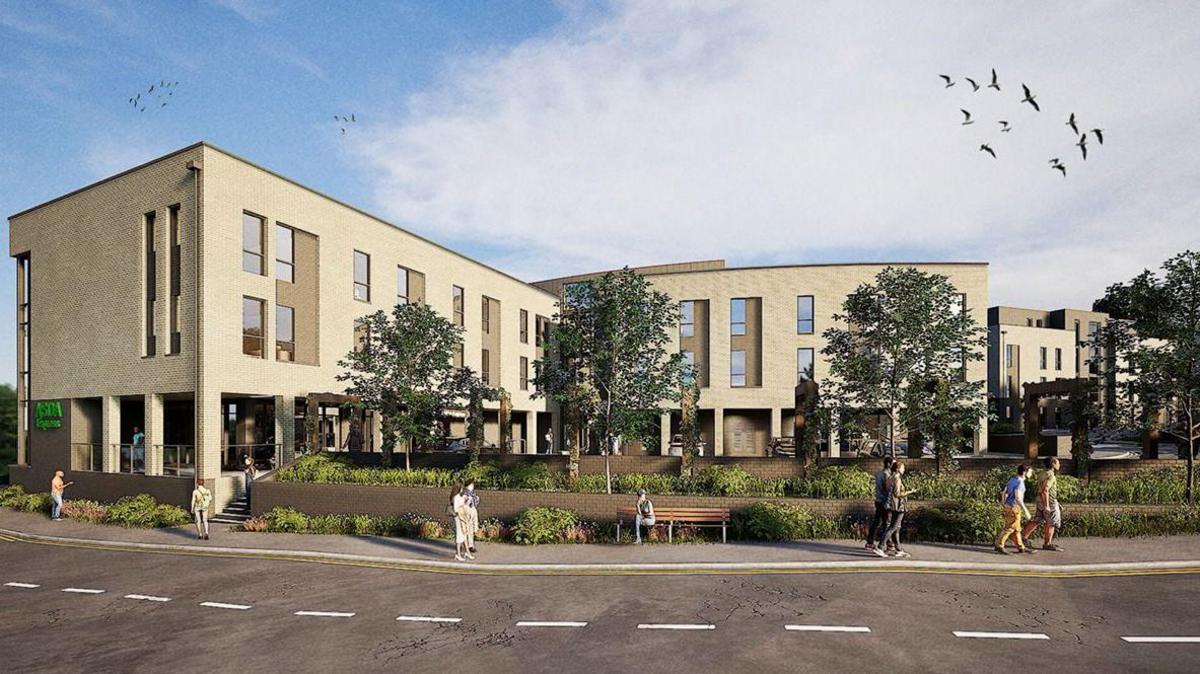Plea to cover 'unsustainable' HMO tax shortfall

Liberal Democrats say there are more bed spaces to accommodate students in Durham than needed
- Published
New legislation is needed to cover an "unsustainable" multimillion-pound council tax shortfall in a city due to the rising number of student houses, councillors have warned.
Politicians across County Durham have called on the government to support the local authority to cover the money lost to an increase in Homes in Multiple Occupation (HMOs) in Durham City.
Full-time students are exempt from paying council tax and the government reimburses local authorities to compensate them for the resulting loss of income.
The government is due to make an announcement on local authority funding reforms by the end of the year, which it said would make the system "fairer".
As more properties across the city are converted into HMOs, councillors warned other key services could be impacted.
Speaking as a planning committee considered two HMO planning applications, Liberal Democrat Mark Wilkes said: "That's another one-to-three thousand pounds that this local authority is losing in council tax.
"We are losing £13m as none of these landlords pays council tax on these properties because students are exempt."
Campaigners have previously claimed that the income lost would help plug the financial deficit in the local authority's budget.
'Fair balance'
Wilkes, member for Framwellgate and Newton Hall, said he would "never expect students to pay council tax if they're not working, but it's unsustainable".
"We have services to provide to the public," he said, adding there needed to be a national legislation change.
The council previously introduced a 10% HMO threshold within a 100 metre (328ft) radius, but landlords are now exploring neighbouring communities in Gilesgate, Belmont and Mount Oswald, according to the Local Democracy Reporting Service.
Councillor David Freeman, also of the Lib Dems, said there were more bed spaces to accommodate students in Durham than needed.
Sugar Tree Limited, a property developer involved with several HMOs in Durham City, saw its two HMO applications approved and refused by the council's planning committee on Wednesday.
Freeman said the council, which has been led by Reform UK since May, should relook at the 10% threshold.
"We must look again at that figure and reduce it to a more acceptable 5%, which would ensure that our communities have a fair balance of residents and students," he said.

Durham County Council recently approved plans for student accommodation
Plans for bespoke student accommodation in the Mount Oswald area were recently approved by the council, with hopes it would prevent family homes being converted into HMOs.
Separately, Reform UK is looking to implement an authority-wide Article 4 Direction, meaning all new HMOs would need planning permission. It said it was necessary to control the amount of shared properties across the county.
Durham University students' union president Abigail Taylor said the prospect of a county-wide Article 4 direction "wasn't worrying" because there was an adequate amount of student accommodation, even with regulations in Durham City.
But she said the council seemed "to be focusing on the expansion of HMOs rather than the quality of the housing stock currently, which is our primary issue."
The government ran a public consultation over the summer on how it proposes to change local authority funding, external. The outcome is due to be published by the end of the year.
Follow BBC North East on X, external, Facebook, external, Nextdoor and Instagram, external.
Get in touch
Do you have a story suggestion for BBC Wear?
Related topics
- Published26 September

- Published10 September

- Published22 July
